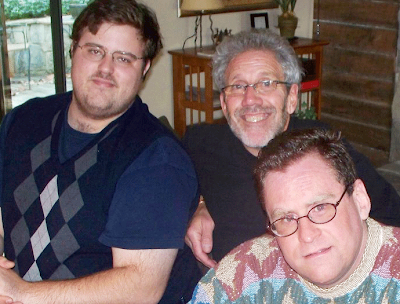
I've often been asked what specific attributes are the most important for someone to have in order to succeed in Caramore. Of course there are many intangibles to consider, but I am convinced there are two underlying forces that link everyone who has ever been successful at Caramore—first is the willingness to embrace a philosophy of sacrifice and hard work to achieve goals; and second, is the inner desire to develop a life built around hope. 

Hard work and sacrifice, I think we all can grasp the meaning of that. But I believe it is that elusive concept of hope which is truly the underlying foundation upon which Caramore has been able to guide people towards success. But what is hope? And can hope, together with hard work, actually alter the course of a disability and its effect on someone's life? We believe the answer is yes.
At Caramore, we don't confuse hope with optimism—a sense that things will work out for the best. Hope is very different from optimism. Hope does not arise from merely “thinking positive,” or crossing our fingers and wishing things will turn out ok. Hope, unlike optimism, is deeply reflected in one's personal efforts and determination to overcome the harshness of reality.
Although there is no universal definition of hope, I found one that seems to capture the essence of what makes hope so vital in everyone's life:
Hope is that elevating feeling that we experience, in our own mind's eye, of our personal path to a better future. Hope acknowledges the enormous obstacles and deep pitfalls that exist along that path. Hope is our inner guiding light that empowers and propels us through the darkness towards achieving our best destiny.
For any person, from anywhere, I can't envision a meaningful life without a strong sense of hope. 




No comments:
Post a Comment